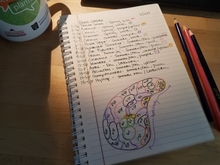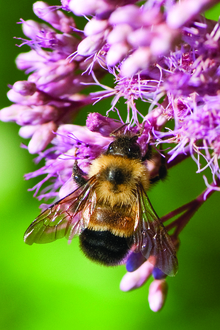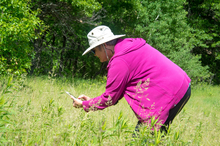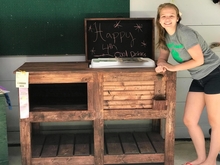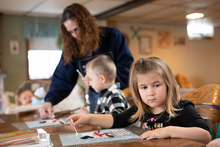You’re trying to do the right thing and maintain an appropriate social distance for the benefit of all during a time of concern about infectious disease. But are you also feeling stressed, worried about cooped-up kids, and maintaining your health?
Here are some ideas from University of Minnesota Extension educators:
Plan your garden
Garden season will come soon and it’s a good time to plan.
“A garden plan can be as simple or as elaborate as you wish,” says Julie Weisenhorn, Extension horticulture educator. “Measure your garden and sketch it on graph paper. Then lay out your planting for the coming season. Use colored sticky notes labeled with plant names and sizes so you can move them around. Be sure to leave space around plants for good air circulation, light and access.”
Learn about pollinators online
Extension has many online learning opportunities and is moving more online during this time. Feeling the need to learn about something fuzzy and cute, but also important? Bumble bees are pollinators, which definitely qualifies them as important.
Pollinators are necessary for our food production, but their populations are under threat. “The large size of bumble bees and relative ease of identification make them an excellent entry point for aspiring citizen scientists,” says Britt Forsberg, Extension coordinator for the Minnesota Bee Atlas project. The Bee Atlas will use observations from citizen scientists to better understand the distribution of native bees in Minnesota. Historically, we know of 23 species of native bees in Minnesota, but it is unknown if they can all still be found here.
In this free bumble bee webinar geared toward adult learners, participants will learn how to identify bumble bees to the species level and how to use their identification skills to participate in the Minnesota Bee Atlas.
Get into nature
Drive, bike, walk or run to the forest or prairie. If you see people who want to chat, keep the recommended distance or let them know you are taking time for yourself in nature while protecting the health of others.
“Hiking reduces stress and increases cardiovascular health,” says Angela Gupta, Extension forestry educator based in Rochester. “For something different, try forest bathing. It’s a mixture of meditation, yoga and hiking, paying close attention to your surroundings while enjoying a slow and mindful hike. Take a small blanket or stadium chair and create your own small sanctuary.”
Gupta recommends using the iNaturalist app, which allows you to inventory what you see. You can identify trees, plants, birds, insects, worms, fungus, pine cones, animal tracks and more. An internet-safe version for children is Seek by iNaturalist.
If you are staying indoors, find a window and watch what happens. “Many bird species are migrating to their summer breeding grounds,” says Gupta. “This is a great time to see some unexpected birds.”
Extension natural resources educators have compiled a great selection of nature-based activities for you and your family.
Make time for a project
Extension’s 4-H volunteers and youth are active in project work at this time of year. “Woodshop is a big one for 4-H families here,” says Toni Gage, youth development educator in Aitkin County. “Families here are very much into building, and they like to do it together.”
Gage says that the current lack of resources is changing what a young person can use for their project. “They might not be able to find or afford the materials for the headboard they imagined building right now. But they will use what they have on hand and might be able to build something even more interesting.”
Anyone can shop in their own closet or garage for project materials. Someday, you will look back at what you made and be reminded of your own resourcefulness.
Give “grace” to yourself and your family
Some children will seize the opportunity to work on a project right away, but other children need time to adjust to the changes in their lives. “You know your kids, so think about their own temperament and trust yourself even if how you parent right now looks different than usual,” says Ellie McCann, Extension family resilience educator.
Some children may need more activity, while others may need more rest—and that’s okay because each child is a unique individual. McCann says comparing children to one another is not helpful during these times. “This won’t last forever, so give them and yourself grace.”
Hug your animals
If children want to cocoon for part of the day with a beloved pet right now, it’s okay to let them do it. “There is a species-specific coronavirus for almost every animal,” says Joe Armstrong, Extension veterinarian. “Still, when it comes to our livestock and companion animals, there is no evidence these viruses are able to infect humans.”
Keep in mind other diseases are zoonotic, so wash your hands after touching or working with any animals.
“Continue to pet (and hug) your favorite livestock or companion animals,” says Armstrong.
Editor's note: See the April 8 Update on domestic animals and COVID-19 for the most current information from Dr. Joe Armstrong.
Do you have stories and ideas about coping through the COVID-19 situation? Tweet them to @UMNEXT or submit them online.


